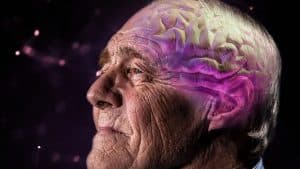When it comes to mental illnesses that have a bad reputation, few are more stigmatized than personality disorders. Depression and anxiety are becoming more widely acknowledged, but personality disorders are tricky things that can be difficult to understand.
Part of this is because personality disorders aren’t about measurable experience, like schizophrenic hallucinations or bipolar mood swings. They’re about patterns of maladaptive behavior. People with personality disorders don’t respond to life in the same way others do. They break societal norms, sometimes harmfully. Some of the most well-known subtypes include borderline personality disorder and antisocial personality disorder (sometimes called sociopathy).
Controversies around personality disorders start with diagnosis (some people claim they don’t exist at all). After all, what counts as socially acceptable varies between cultures, making it hard to create objective measurements. Many personality disorders overlap with each other and with other conditions. You may need to rule out other potential diagnoses before landing on something that fits.
Then there’s what to do with the diagnosis. All mental illnesses need at least some cooperation from the patient for successful treatment, but this can be particularly tricky with personality disorders. It’s often hard to convince someone that they have a problem and need to change their behavior. They may even enjoy feeling different from everyone else.
Many personality disorders include aggression and poor impulse control among their traits, which means people with personality disorders can be disruptive in therapy sessions. For antisocial personality disorder, a tendency toward manipulative behavior can lead to playing mind games with a therapist or using them to learn new ways to manipulate people. You need strong boundaries to deal with this situation.
It’s not helped by the fact that psychologists and psychiatrists know that personality disorders have a reputation for being difficult to treat. This can encourage therapists to give up before they start. It often takes a particularly specialized and experienced professional to deal with this kind of patient.
Personality disorders are often triggered by a childhood trauma that wasn’t properly managed at the time. Instead, the person develops their own maladaptive coping strategies that become fixed in adulthood. That means they may desperately need support, and society needs to figure out better ways to help them cope without endorsing any bad behavior. The fact that this is difficult doesn’t mean people with personality disorders should be shunned or dismissed.




